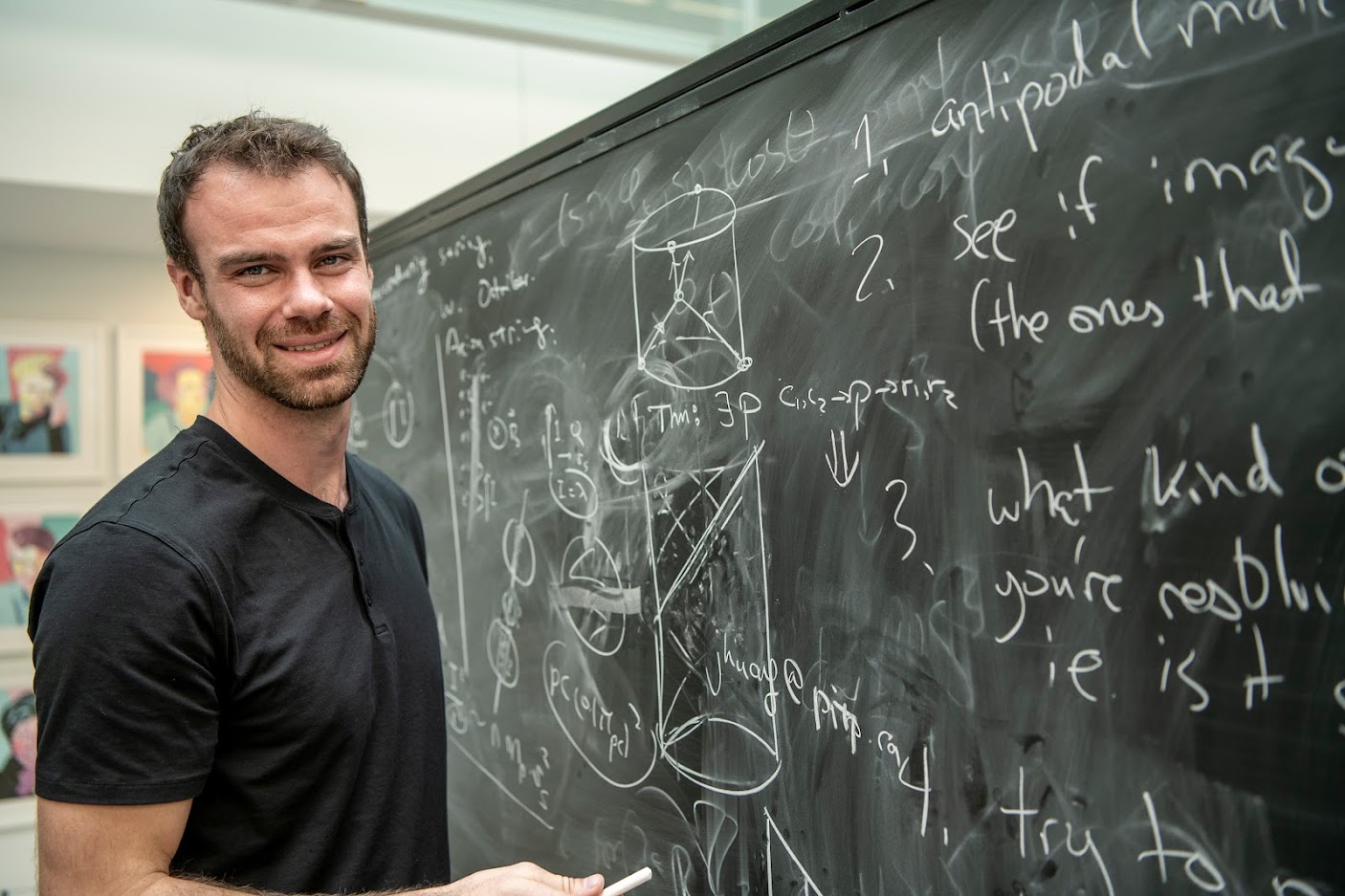Alex May joined Perimeter Institute so he could tackle some of the most vexing questions in the universe.
How did the universe begin? What is time? Can all of reality be explained by a grand unified theory? Also, how does one accurately measure and cut drywall to fit perfectly around electrical sockets?
The first three questions are part of May’s job at Perimeter as a junior faculty member, specializing in quantum gravity. That last question, and a thousand others like it, dawned on May when he moved to Waterloo for the job in the summer of 2023.
Growing up in Langley, British Columbia, May had always enjoyed building things. It started with LEGO and continued when he landed a job at a sawmill during high school.
"I spent my childhood running around in the forest, building forts, and getting into trouble,” recalls May. “That rural upbringing really shaped me."
When he bought a house in Waterloo, he built a basement suite with a kitchen and bathroom, teaching himself how to do all the drywall and plumbing in the process. The manual labour provided a welcome counterpoint to May’s day job, where he immersed himself in the counterintuitive realm of quantum phenomena.
Specifically, May is seeking new insights at the fuzzy overlap of two distinct fields – quantum information and quantum gravity.
“I'm especially interested in the interface of these two fields and how they interact with each other,” he explains. "I'm interested in how we use the framework of quantum mechanics to answer practical questions — how we can process information, compute more efficiently, and securely communicate information."
For the kinds of questions he’s tackling, Perimeter is the perfect environment in which to seek answers.
"The first time I visited Perimeter, I realized it was built for people like me,” he recalls. “It was exciting to be around others who shared my passion."
May’s research uses ideas from quantum cryptography to gain insights into a big idea in physics called AdS/CFT, which connects gravity and quantum field theory. But it’s not a one-way street — May believes AdS/CFT can teach us much about cryptography too.
The connection between cryptography and AdS/CFT was made by linking each of them to a subject known as non-local quantum computation. In the past, non-local quantum computation was considered a somewhat niche topic in cryptography, but May and colleagues have demonstrated that it’s actually deeply connected to many core cryptographic principles.
This means that those fundamental cryptography concepts are now linked to AdS/CFT and quantum gravity too.
Progress is hard-fought in a field so new and complex, and May knows many avenues of his research may turn out to be dead ends. That’s part of the adventure, he says.
"I love the challenge. When I was younger, I just wanted something really hard to do. The work is so absorbing that I'm thinking about it all the time. When you make a discovery, there's a striking beauty to it. Physics can be beautiful when you see the deeper structure beneath seemingly disconnected ideas. That realization can be very satisfying."
About PI
Perimeter Institute is the world’s largest research hub devoted to theoretical physics. The independent Institute was founded in 1999 to foster breakthroughs in the fundamental understanding of our universe, from the smallest particles to the entire cosmos. Research at Perimeter is motivated by the understanding that fundamental science advances human knowledge and catalyzes innovation, and that today’s theoretical physics is tomorrow’s technology. Located in the Region of Waterloo, the not-for-profit Institute is a unique public-private endeavour, including the Governments of Ontario and Canada, that enables cutting-edge research, trains the next generation of scientific pioneers, and shares the power of physics through award-winning educational outreach and public engagement.
You might be interested in



